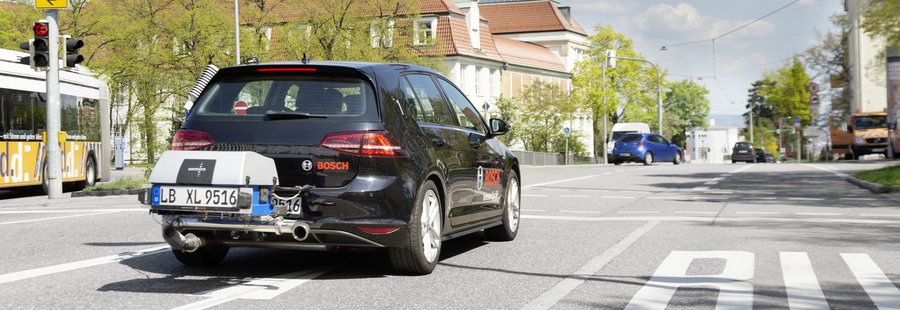Bosch announces emissions breakthrough that could save diesel

Bosch says its technology uses a combination of advanced fuel injection, a newly developed airflow management system to recirculate exhaust gases, and intelligent temperature management, and it requires no additional new components. It says the technology drops nitrogen oxide emissions to one-tenth of the amount set under the stricter 2020 limits for Europe, even in real-world driving conditions. Bosch says the results hold consistent regardless of driving conditions, weather or how aggressively the vehicle is driven.
Speaking at the company's annual news conference outside Stuttgart, CEO Volkmar Denner said the solution is available now and can be incorporated into production vehicles without adding significant cost.
"Combustion engines — whether powered by diesel or gasoline — will soon emit so little in the way of particulates and nitrogen oxides that they will have no significant impact on the air," he said, according to a transcript of his prepared remarks. "For anyone with a pragmatic, non-ideological interest in improving the air in our cities, diesel engines and their further technological development will obviously be part of the solution.
"After this ecological rehabilitation, diesel can take off again. It is not combustion engines that are being made obsolete, but rather the debate about their imminent demise."
Bosch is the biggest supplier of diesel engine technology to automakers including Volkswagen, General Motors and Fiat Chrysler. It has been fighting the negative publicity and falling market share in the wake of VW's 2015 dieselgate emissions-cheating scandal that has cities including Paris and London considering driving bans to improve air quality. The company has also found itself targeted by German authorities investigating whether it aided and abetted the emissions-cheating scheme.
Denner said Bosch fully cooperates with the authorities, and he called for more transparency in emission tests for cars with combustion engines and electric powertrains, including a renewed focus on CO2 emissions. He said Bosch is prohibiting technology that recognizes test cycles and optimizes accordingly, Bloomberg reports.
It's the latest evidence that despite the expanding rush to electrify vehicles, automakers still see a role for ever-more-efficient combustion engines in reducing emissions and meeting tougher fuel-economy and climate-change regulations. Mazda, for example, is developing its Skyactiv-X engine based on compression-ignition technology, while Infiniti has its new variable-compression-ratio, or VC-T, a small turbocharged engine that can vary compression ratios inside the valves to maximize efficiency.
Related News
